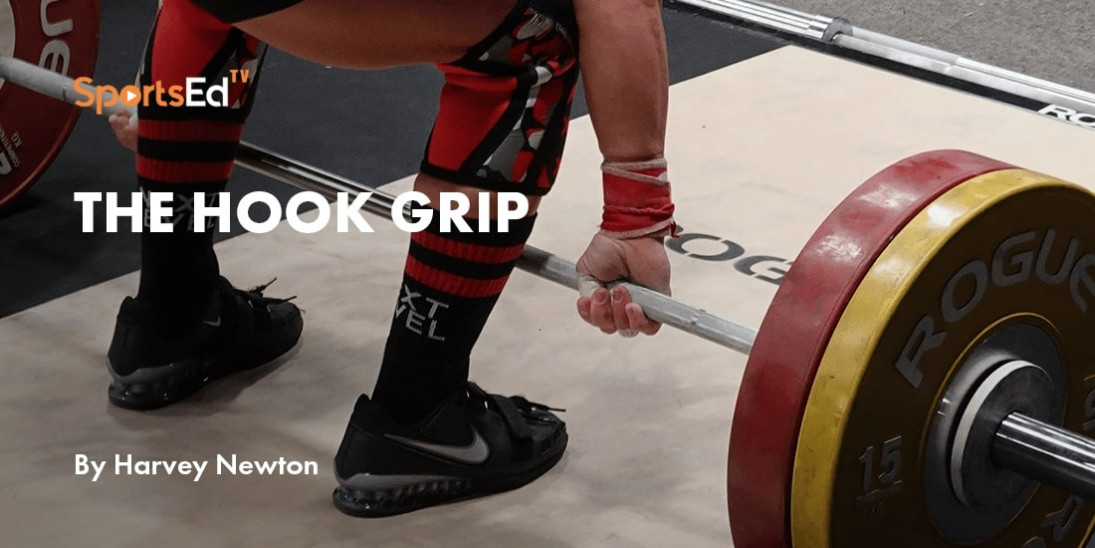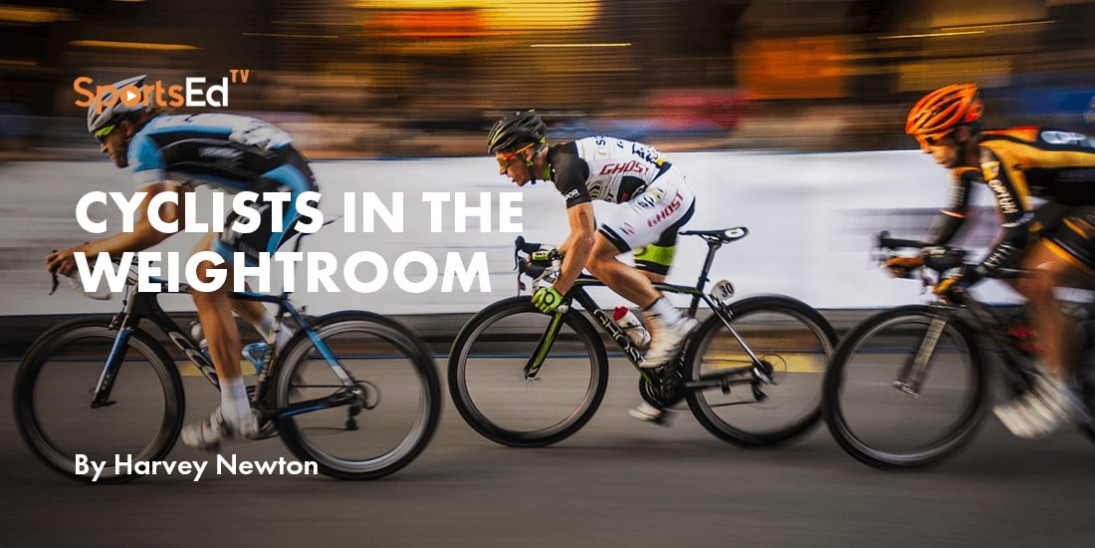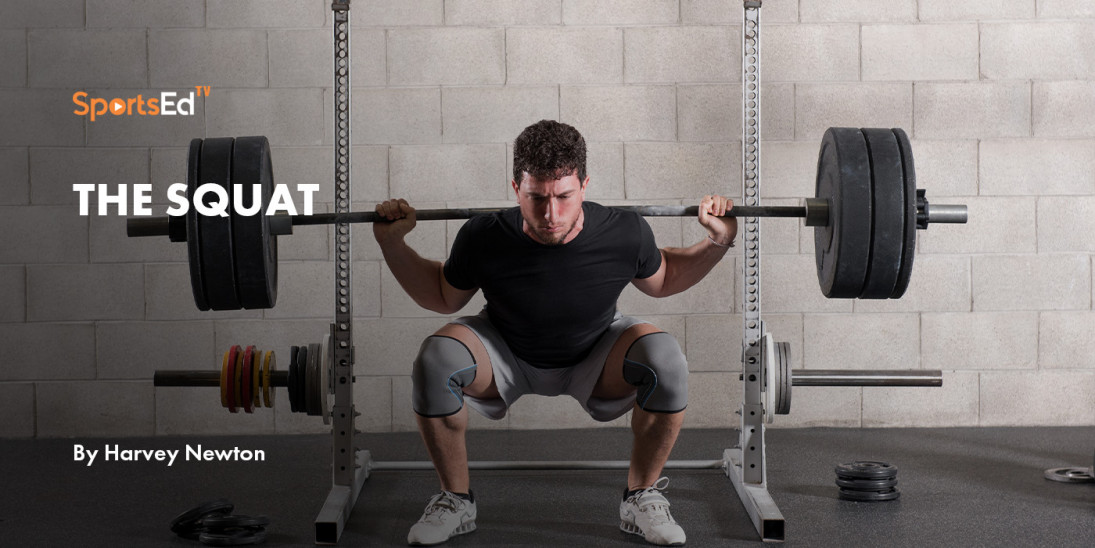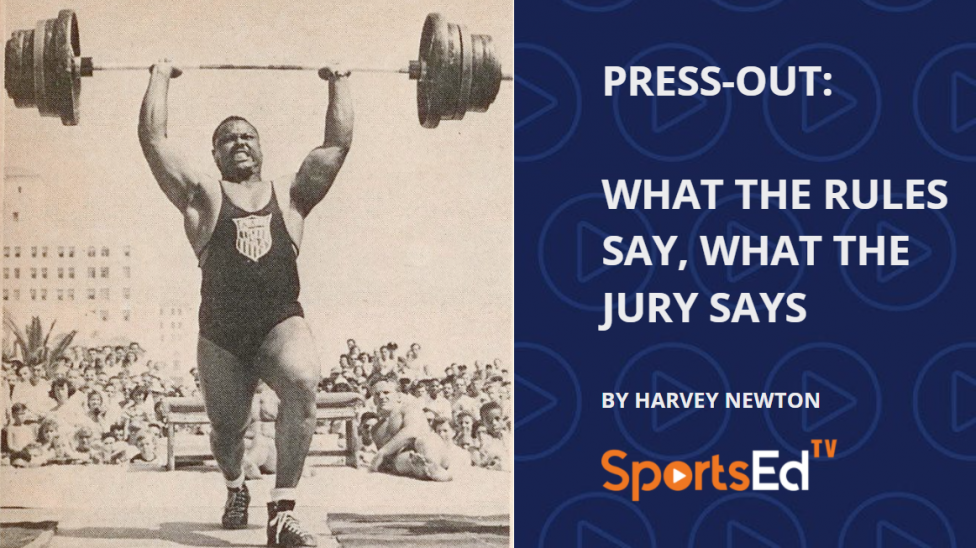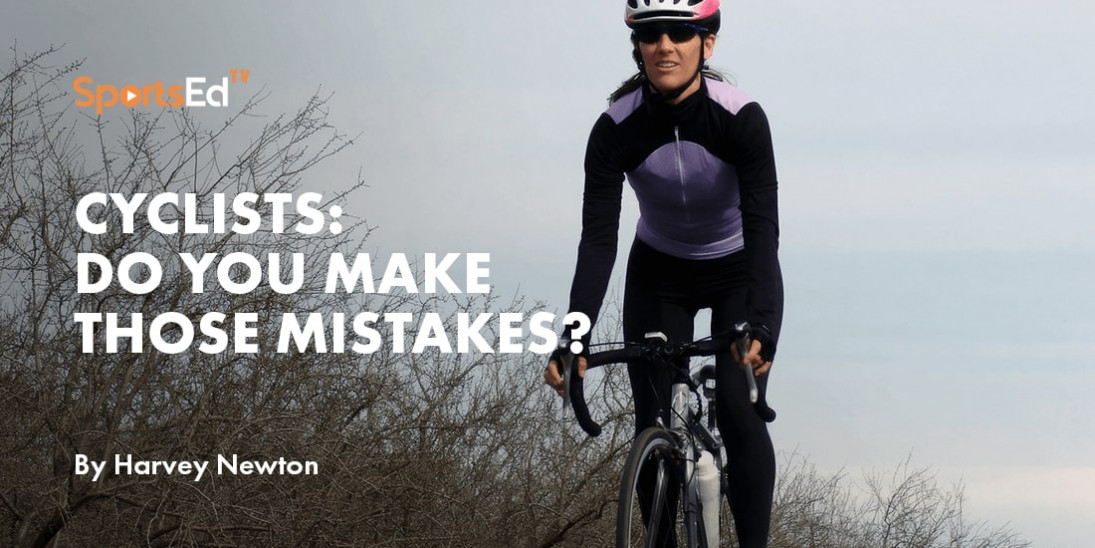Weightlifting
Welcome and thanks for visiting...

Harvey Newton Interviews Olympic Coach Tim Swords
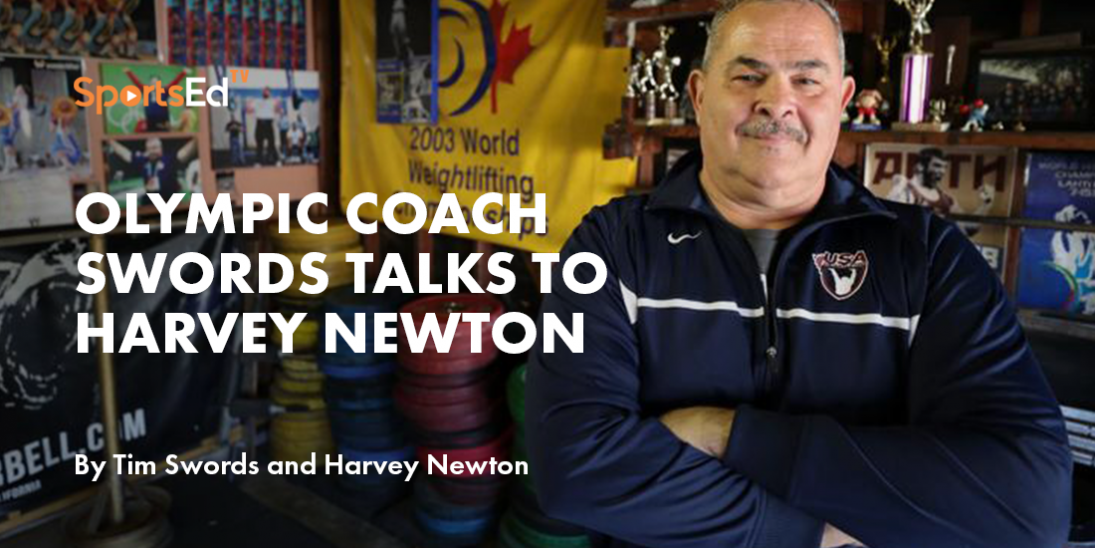
HN: I’d like to welcome SportsEdTV viewers to a great interview with Olympic coach Tim Swords, a longtime friend of mine and the head of Team Houston Weightlifting. We hope to glean some great information about what's happening in Houston and what the future holds. So, with that said, I'll turn it over to Tim. To start, we run a couple of questions to structure the interview. Number one, Coach, please outline your experience as an athlete and how you transitioned into coaching, then where you find yourself today.
TS: It's a pretty long journey. I come from a very unique family with five Type A men. My father was a college athlete at Notre Dame, but was a real intellect, was valedictorian of his graduating class at Notre Dame. He was more into academics. But he loved sports. He thought we should be active in sports, preferring we played all sports. I wasn't very good at a few of them. So, I moved towards the things I thought that I was good at. I could run real fast for a big person and I can put people on the ground, a heck of a skill set. Yeah. I was OK for wrestling and was tremendous for football. What could I do to make myself a better football player?
An older brother played football and wrestled at Virginia Tech. He was maybe the strongest guy in the Ohio Valley, and he put the barbell in my hands. At age 13 I told my father, I'm really a terrible basketball player and don’t like the sport. Well, he said, “What are you going to do?” “I'm going to start lifting weights.” Dad looked at me and said, “Well, do you think you'll stick with that?” Here I am, still doing it.
I really didn’t want to do what my brothers did. My oldest brother was a PhD biochemist. I was never going to be that guy. I tried things like springboard diving. My butt got too big and I made a huge splash, so that was out.
I put all my energy into football and getting strong. It was easy enough that I could go ahead and continue to lift. I tried weightlifting as a kid. My brother and I trained hard. At 13 I saw Strength & Health magazine with Joe Dube on the cover. I saw that picture and it was like, Good Lord, what are these guys doing? We went home and I read that S&H three times. My dad said, “Well, he’s reading, let’s get him a subscription.”
I was a fair student and enjoyed health-related stuff. One brother at Virginia Tech could deadlift 600lbs. for 10 reps. He was an extremely strong human being. Dad supported our training and saw that I was actually doing what I said I would do. We had a power rack and even plates made at the foundry. He did everything to help us get strong.
It all started with being an athlete in high school; I had 12 Division One scholarship offers. I decided to go to East Carolina, the best thing I ever did. There I had an opportunity to play all four years, had a tremendous coach, a guy named Pat Dye, who went to Auburn, Bo Jackson's coach at Auburn.
Later, I had an opportunity to try for some NFL opportunities with Tampa Bay and the New York Giants, but I went back in East Carolina University. They hired me as a strength and conditioning coach. That's where I met Jeff Johnson, a good lifting technician. He just wasn't that strong, right? He was a really tremendous strength coach. He got a lot of people working on the Olympic-style lifts.
HN: I also enjoyed having him out in Colorado Springs for a long period of time. He was a hard worker.
TS: He had long femurs and a short torso. He was fast. Yeah, and he could front squat. I saw him front squat with 172.5kg (380lbs), when his best clean was 170kg (374lbs.). I was very lucky to work under him. He made all the sports there became better.
I had an opportunity to go to the United States Football League. I went to a tryout in RFK Stadium. It was cold, about 30 degrees. There were 600 plus people trying out. I think the thing that got me signed was I ran a 4.8 second 40-yard sprint on the grass. I slipped and bear crawled the first five yards. The coaches both looked at their stopwatches and agreed to the time. So, I got an opportunity to play pro football.
I was blessed with great parents that helped us do what we needed to do. That's kind of how this program (Team Houston) has been, I do my best. I'm parenting a lot of kids. I have for 35 years. I'm really passionate about what I do with these kids. I give 100%, it's fun. It's fun to see others succeed.
HN: Tell us a little bit about Team Houston and its early days and where you are today.
TS: Coach Otto Ziegler was the gentleman that actually started this program, and he did it many years ago. It was called The Weighting Place. I later called it Team Houston because I wanted it open. I wanted to open it up to the entire Houston area.
Mr. Zeigler was a really tough old guy. When I first moved to Texas in 1988, I just got the job. I was told I needed to be here in four days. I packed my stuff up and 1,400 miles, ending in Baytown in an apartment.
The US Olympic Sports Festival was in Houston the year before. There were only six registered USA weightlifters in the whole city. Mr. Ziegler was getting older but was still working with some kids. Otto was old school; the bar never touched the body. It was just a straight pull, grab and go. He did a wonderful job, training several hundred kids with boxing, and a lot of weightlifters. Looking to step aside, I told Otto I would be happy to take over if he wanted me to.
I agreed to be the LWC (Local Weightlifting Committee) president and get some clinics together. Jeff Macy came in and did a couple of courses. Coach Kyle Pierce came in and did stuff for us. Houston went from six registered lifters to several thousand. Certainly, CrossFit has something to do with this. Many came out of my garage gym. I'm not saying I'm the reason there's weightlifting in Houston, but I have done my best to promote the sport in Houston and throughout Texas.
Coach Bear Bryant also affected me. As a college senior we were ready to play a spring football game. In the office, Coach Dye hollered at me, “Can you come in the office here a minute?” Coach Bryant was there, and I think he’s probably the most intimidating person I'd ever met. It was like meeting a four-star general. He stood up and I was introduced as the team's strongest player who works hard in the weightroom.
Coach Bryant shook my hand and said, “Son, you must have passion for what you do.” I replied, “I just I work really hard and want to help the team get better.” He said, “Your life will never be fulfilled until you find your passion.” That was like a light going off.
HN: That's a very profound moment for sure. It set the course you're still on. Tell us, within the team Houston environment, you deal with a lot of lifters of different skill levels. Does everyone train several days a week, or do you divide up training based on skill?
TS: I have other coaches I trust to help with training. There's a four to five-hour window of time when we can train. The neighbors are really good people about the activity.
HN: Between your house foundation and the neighborhood, have you had any problems?
TS: We've got good equipment and have reinforced the platforms with an inch and a half of rubber. The impact is a bit annoying though. But the neighbors understand, and the lifters help them out when needed. We moved a 500lb gun safe for a neighbor. They are proud that this garage has produced seven senior Pan Am team members and an Olympian.
HN: All this is in a two-car garage? One platform area or do you have several?
TS: We have one platform that's 20’ x 8’ and another platform that is 16’x8’. I have a lot of kids that are 10 to 13 so much of their work is basic strength training and mobility. When people are strong enough to have good positions we start working on the lifts. We do all sorts of things to build core stability.
HN: Do you aim to get all these folks on the competition platform?
TS: Many of the strong kids go on to play college football. Some remain in the sport. A few went on to the Colorado Springs Olympic Training Center. Some made senior international teams.
HN: You've accomplished a lot quality-wise. You're certainly dealing with a lot, quantity- wise.
TS: We've been pretty successful. I've never recruited anybody. I'm not doing this to make a living. I'm not doing things like some of the online coaches, which I don't believe works well.
HN: I think many of us who have been in the trenches for a few years have decided that online coaching is not the way to go.
TS: Lifters need immediate feedback. The human eye is better than the camera, in my opinion. We're doing things like from the power position, from the hang position, maybe from below the knee. Some kids come from schools where all they get is modified circuit training. It's terrible, it's ludicrous. Texas has these good kids who can train year-round, like in Florida.
HN: The Texas high school system has always been fairly closely linked to powerlifting rather than weightlifting.
TS: It’s a powerlifting place. I see many kids that came from powerlifting having quadricep or hamstring issues. They are stiff. I have not really had a kid that came out of powerlifting that ever became a good weightlifter.
HN: That conversion just doesn't seem to work well. I'm sure it's frustrating for a strong person not to be able to fix a snatch overhead.
TS: I came from powerlifting background. I would have been a weightlifter in my youth, but I just didn't know.
HN: Providing excellent quality coaching is what we do at SportsEdTV. We address getting started in weightlifting, especially without a coach or in a community where weightlifting is not a strong function. We offer a good deal of free online instruction. We use quality athletes to illustrate. We're having a very solid buy-in. Weightlifting is running #1 among our sports in terms of Instagram traffic. Coach Swords, we want to continue to encourage you to feed into the system. We were very happy to have you a senior contributor despite your busy schedule.
You and I talked a while back and I want to make sure we spend some time on your most accomplished lifter, Sarah Robles. A lot of our audience are interested in how you've been able to get this successful lifter into a couple of Olympic Games where she has done so well.
TS: We've got a really good relationship. Sarah needs reinforcement from time to time and wants to do well. She's a great talent.
HN: Sarah came out of track and field.
TS: She did come out of track and field and went to Alabama on a full ride scholarship. She was a high school all-American in the discus. The coaches trained the girls different than the boys, which was kind of weird. Sarah was lucky to eventually work under Coach Rich McClure. Then she moved around, going to the Olympic Training Center, University of Northern Michigan, ending up in Arizona.
A few years back she made a stupid decision to take an over-the-counter substance that got her suspended. She was devastated because she was only following doctor’s instructions.
We first met some years back when I was with the Junior Pan-Am staff in Cali, Colombia, 2008. I asked them, “Who is this girl?” This 265lb (120kg) girl moves like she weights 130lbs (59kg). She ended up winning two medals. I was really excited about her and gave her a big hug and said, “You are special.”
I saw her next at the following year’s Nationals, where I wished her well. A while later Sarah called and asked if I was available to coach her if she moved to Houston. I told her, “Yep, come to down to Texas!”
She stayed in an extra room at the house for 5-1/2 months. I did the same thing for a young boy whose parents had to return to Nigeria. He was a junior squad level kid and junior world team member. He had the room. I'm passionate about this stuff. We love the sport. And then, why not?
HN: You've certainly been a very positive effect on Sarah across time. You've leaving in a couple of days for the World Championships.
TS: Sarah’s on the team.
HN: What condition would you say she's in? I just saw that the Chinese have decided not to take part.
TS: Yeah, it's all about this COVID stuff. I had two brothers that got COVID and it wiped them out. I've taken the shots. But sure, I'm a little nervous about this. But I'm ready to go.
HN: Generally, lifters take a long layoff after an Olympic cycle. What are your expectations of Sarah’s performance?
TS: She's going to medal. Sarah has stayed on a pretty simple program, only squatting twice a week. Sarah squats 230kg (507lbs),and front squats 205kg (451lbs). She's strong enough. We're only working out four times a week. Also, she's dropped about 9kg of bodyweight. We figured to make it a little easier on her joints. I think she's got a good three years left in her.
HN: Paris 2024 is coming up quickly. She's enthusiastic about continuing on toward Paris?
TS: At this point, I think so.
HN: Fantastic. I'd like for us to be able to continue in the future and highlight Sarah. I’m sure a lot of people would love to know how the training comes together. You are offering some very mature suggestions in terms of how an older athlete needs to make accommodations and yet still perform well.
For our listeners and readers, what's the quickest or easiest way for them to make contact with you if they have a question?
TS: Just send me a message on Facebook Messenger. On Facebook I try to put weightlifting-related stuff out there. Not quite all, but most of it. Or try email; I get emails all the time from people.
HN: Your message has come through loud and clear, Coach. I’ve been very positively impressed with what you've done and your growth as coach.
TS: I had a news reporter ask me this question after the Rio Olympics: “Was this your greatest experience in the sport of weightlifting?” I replied, “I can't necessarily say it was my greatest experience." At the Texas State Weightlifting Championship 15 years ago I had a 10-year-old girl competing with three others. Someone bombed out, but she didn't know it. When they called her name and she received the bronze medal, she cried and was so happy.
She came over and jumped into my arms. Harvey, I cried too. I told the reporter that that incident was my greatest experience in the sport. Did she grow up to be a great weightlifter? No, she did not. But she grew up to be a fantastic mother of two, and a devoted wife. That’s just another story of a person who had someone believe in them, and they became successful.
HN: I appreciate very much that you've shared that with us.
VB (Victor Bergonzoli, CEO SportsEdTV): Coach, you're very inspiring. Thank you. I love everything you post. I hope the World Championships will be very successful for you. I can't wait to see the videos and the picture likes.
HN: Please give Sarah our best, and safe travels. I hope everybody gets there and comes back safely and healthy. Happy holidays as they come up.

